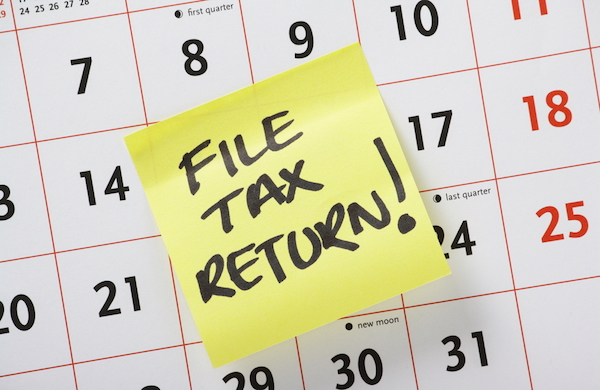In this 10-minute read:
- An intro to small business taxes
- Other business-related taxes you might have to pay
- What forms do you need for business taxes?
- SMB tax preparation software
- Annual and quarterly SMB tax deadlines
- Deductible expenses for your small business
- Business tax rates for 2020
It’s no secret that tax season is often a dreaded time of year for business owners. Taxes are complex and you don’t want to mess up your return and end up with an IRS audit of your business. We get it.
Attract new customers and keep them loyal with reputation management software. Learn more, plus get free reputation monitoring and customer insights when you sign up for Womply Free!
We want to help alleviate that stress that regularly occurs this time each year by making your small business taxes a little easier to understand and work through. We always recommend having a finance professional assist you with your taxes and avoid common mistakes.
Let’s get started.
An intro to small business taxes
Every business owner is required to file an annual income tax return. This will help you to know exactly what you owe in taxes for the year.
But what are your tax obligations as a business owner?
Generally speaking, there are three types of taxes that you’ll need to pay:
- Income tax
- Self-employment tax
- Employment taxes
You are required to pay income taxes throughout the year. As you earn revenue, or income, you may pay that to the IRS on a quarterly basis (we’ll talk more about due dates further down in the article).
Employees have income tax withheld from their paychecks. That’s where employment taxes come into play. If you have any employees you will need to withhold their income tax during the payroll process and pay these taxes along with your business taxes.
Likewise, as a business owner, you are self-employed and thus need to withhold your own income tax as well.
Other business-related taxes you might have to pay
For certain types of businesses, you might be required to pay additional taxes during this time. Common additional forms of taxes for businesses include state and local, property taxes, sales tax, and excise taxes.
State/local
The only businesses that won’t have to pay state taxes are those that work out of states that don’t require a state tax. So be prepared to pay state taxes for your business.
Property
If you own a commercial property, you will have property taxes to pay. The city or county usually assesses this tax.

Sales
If you sell products, you will likely be responsible to pay sales tax. This is all dependent upon which state you are in and if sales tax is charged to the customer.
When you sell things online, this can get a little muddled if you are selling products to multiple states with different rates for sales tax.
Excise Tax
Excise taxes are required for specific types of products such as tobacco and gasoline. An excise tax is paid by the manufacturer of these specific products because the tax is levied at the moment of production rather than at the point of sale.
Reasons you may need to pay excise taxes:
- You manufacture or sell a certain type of product
- You operate a certain kind of business
- Various types of equipment, products, or facilities are used
- You receive payments for specific types of services
We know this is pretty vague, but we encourage you to look into the kind of business that you operate to determine if you need to pay excise taxes, especially if you manufacture anything or your services require environmental safety checks.
What forms do you need for business taxes?
This is where things can get tricky. What forms do you need to file for your business taxes?
The forms that you are required to file depend on how your business is organized.
Sole proprietor
A sole proprietorship definitely has the simplest process for filing business tax returns. As a sole proprietor, you and your business are one and the same when it comes to taxes. You just need to report your business income and expenses on a Schedule C form (Form 1040 or 1040-SR). You can file this with your personal income tax return.
If you have more than one sole proprietorship, you’ll file each one on a separate Schedule C.
C corporation
If your business is set up as a C corporation, you’ll file Form 1120 for your return. This form is a little more involved as it requires balance sheets and shareholders’ equity to be reported.
As an individual, you will report your income like any other employee of the business with the applicable Form 1099.
Corporations with shareholders must go through “double taxation,” which is when the income is taxed twice.
This is because the income is taxed as it is earned by the company and then again when the shareholders pay their required tax on dividends and other returns.
Partnership
Businesses structured as partnerships will use Form 1065 to file their return. In a partnership, all income is passed to the partner, and they, in turn, each receive a Schedule K-1 to report their share of the income on their returns.

S corporation
An S corporation is structured like a C corp with the exception that S corps have a limited number of shareholders. The income for an S corp goes directly to the shareholders who then report the income on their personal tax returns, eliminating the need for double taxation.
The same form used for a partnership, Form 1065, is used here.
Limited liability company (LLC)
LLCs have a unique standing here because you can choose how you want to file. If you choose to file as a sole proprietor, then you should use the Schedule C form with your individual return.
However, if you want to file as a C corp or S corp would, you can choose Form 1120 or 1120-S. You can also choose to file a 1065 as a partnership would.
Non-profit organization
Non-profit organizations, such as charities, churches, and some educational organizations, file Form 990. This allows you to report income, expenses, and a balance sheet.
You may be required to report specific information about the officers of the organization as well.
If you get paid by the organization, then you should receive a W-2 which you will use in filing your individual tax return.
Consider small business tax preparation software
Should you use some kind of software program to prepare your taxes? Here are some options that can be helpful for you, but we always recommend having a business tax professional helping you out during tax season.
Most of these businesses have experts you can call or hire for additional assistance as well.
TurboTax
TurboTax is great for small businesses. While it is generally on the more expensive side of most business tax softwares, they regularly offer discounts.
You can e-file your return for any business type electronically for free using TurboTax (you pay for the software, though).
Cost:
- Currently $90 for sole proprietors (regularly $120)
- Currently $159.99 for partnerships, C corps, and S corps (regularly $169.99)
- Cost per state is $40 (regularly $45)
- E-file for free
H&R Block
H&R Block offers business tax preparation software for S corps, C corps, partnerships, and LLCs.
Cost:
- $89.95 to download the software for federal and state returns
- Basic and deluxe state filing is $39.95 for each state
- If you wish to e-file, that will be an additional $19.95 per state
TaxAct
TaxAct is another highly rated software for helping small businesses with their tax returns. Their premium plan also includes a “Deduction Maximizer” which guides you step-by-step through claiming your deductions to ensure the largest return possible.
Cost:
- $74.95 for sole proprietors
- $109.95 for partnerships, C corps, and S corps
- $49.95 for each additional state filed
Annual and quarterly small business tax deadlines
As a business owner, you now have multiple tax deadlines, rather than just the familiar April 15th due date that we have come to know and “love.”
In the United States, we have what is known as a pay-as-you-go tax system, which is intended to help you stay on top of your taxes throughout the year rather than frantically trying to pull it all together at the last minute.

With the pay-as-you-go system, you are required to submit quarterly estimates on your income taxes.
The estimated tax deadlines for 2020 are:
- April 15 – Q1
- June 15 – Q2
- September 15 – Q3
- January 15 (of 2021) – Q4
Businesses do still have an annual deadline for their overall tax returns as all.
For C corps, you get to keep the April 15 deadline on your calendar!
For partnerships and S corps, move your deadline up one month because your returns will be due on March 15.
Deductible expenses for your small business
Don’t neglect the deductibles as you process your tax returns. This will help lower the amount of taxes that you need to pay from your income, because you’ve already used that portion of your income to pay for approved business expenses.
Take a look at these common deductibles for small businesses and make sure you properly claim and document everything that applies on your own tax returns:
- Equipment/office supplies
- Postage
- Subscriptions for software or magazines (you must show that they serve a business purpose)
- Cost of goods
- Bad debt (money owed by a client that never got paid)
- Expenses from collection agencies (for working on those clients that aren’t paying you)
- Banking and credit card fees
- Interest on loans
- Employee education/training
- Health insurance premiums
- Janitorial services
- Maintenance and repairs
- Utilities
- Advertising expenses
- Tradeshow and convention attendance fees
- Entertainment and gift budgets for customers
- Professional services like accounting, consulting, contractors, and legal fees
- Homeowner’s insurance (a portion of this can be deducted if you have a home office)
- HOA fees
- Travel fees like airline tickets, lodging, meals, and rental vehicles
- Vehicle expenses as related to the business including car payments, mileage, and parking tolls
As you can see, there is a lot that you can deduct from your income tax. You just need to keep good records of these expenses throughout the year.
Even if a business expense didn’t make this list, it’s likely a deductible expense. So keep track of everything throughout the year to be prepared for tax season.
You might also like: Advantages and disadvantages of starting a home-based business
Business tax rates for 2020
Each individual and business will have different rates on their income taxes depending on the amount of income they have in any given year.
For C corporations, the income tax rate is a flat 21%. However, because of double taxation, that’s just the first cut. For the shareholder taxes, the tax rates vary depending on how long they have owned their shares.
Qualified dividends (for shareholders who have owner their stock for longer than 60 days) will get more favorable tax rates.
Shareholders who fall into the unqualified dividend category are required to pay taxes for their return based on their individual income.
This individual income tax rate also applies to freelancers and sole proprietors:
- For single taxpayers making over $518,400, the tax rate is 37% (the threshold is $622,050 for married couples filing jointly)
- For single taxpayers making over $207,350, the tax rate is 35% (the threshold is $414,700 for married couples filing jointly)
- For single taxpayers making over $163,300, the tax rate is 32% (the threshold is $326,600 for married couples filing jointly)
- For single taxpayers making over $85,525, the tax rate is 24% (the threshold is $171,050 for married couples filing jointly)
- For single taxpayers making over $40,125, the tax rate is 22% (the threshold is $80,250 for married couples filing jointly)
- For single taxpayers making over $9,785, the tax rate is 12% (the threshold is $19,750 for married couples filing jointly)
Enhance your business with online reputation management
Keep the money flowing by making sure you have a good online reputation when customers find you. Womply’s reputation management software helps businesses maximize the benefit they receive from online reviews and help businesses grow their customer base.
Also, Click here to check out our small business loans resources. Learn more, plus get free reputation monitoring and customer insights when you sign up for Womply Free!
https://www.fundera.com/blog/home-business-tax-deductions
https://www.irs.gov/businesses/small-businesses-self-employed/business-taxes
https://www.daveramsey.com/blog/small-business-taxes
https://blog.taxact.com/tax-forms-to-file-file-business-return/
https://www.hrblock.com/tax-software/premium-small-business-tax-software/
https://turbotax.intuit.com/lp/ppc/3913
https://www.taxact.com/business-returns
https://thecollegeinvestor.com/32815/tax-due-dates/